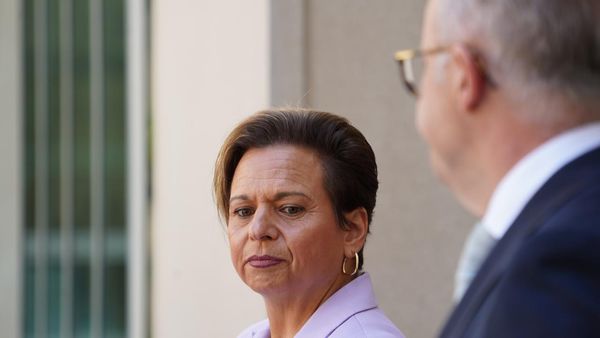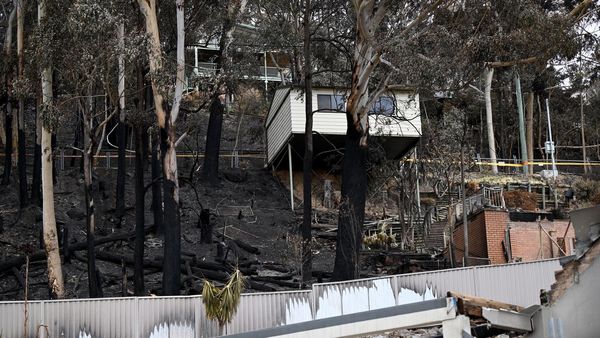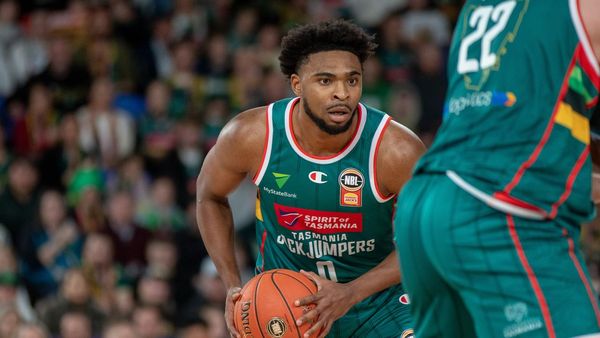
There’s a reason The Last of Us has been a favourite of LGBT+ gamers for a decade. When it comes to queer representation in mainstream video games – a sexually conservative branch of the arts, admittedly – The Last of Us stood head and shoulders above all its major rivals. In adapting the acclaimed post-apocaylptic story for HBO, showrunners Craig Mazin and Neil Druckmann have, thankfully, left its queer storylines intact.
Well, “intact” may be the wrong word. Four weeks ago, the series stunned viewers with a tearjerking episode called “Long, Long Time”, in which the story pivoted away from wandering protagonists Joel (Pedro Pascal) and Ellie (Bella Ramsey) to focus on a 20-year love story between two middle aged men, Bill and Frank. The episode was deeply moving, and well put-together, but ended in the characters’ deaths. (This is the apocalypse after all.) Those fearing that this would be the end of the series’ investment in LGBT+ storylines, however, have had their doubts assuaged. The latest episode, titled “Left Behind”, is set before the bulk of The Last of Us’s storyline. We see Ellie’s life before Joel, in the Quarantine Zone. Her friendship with Riley (Storm Reid), which turns into the beginnings of a romance. Before anything really develops, they are bitten by an “Infected”. And the episode ends.
Taken on its own merits, the episode is a winning one, a wide-eyed adolescent love story laced with tragic melodrama. In the context of the season, however, a pattern emerges. Riley joins not just Bill and Frank on the list of killed-off minor characters, but Sarah (Nico Parker), Tess (Anna Torv), Henry (Lamar Johnson), and Kathleen (Melanie Lynskey), among others. “Left Behind” is particularly noteworthy as a showcase for Ramsey’s formidable performance. But you can’t help lamenting how short-shrifted the opportunities are for any actor not named Pedro or Bella. Lamar Johnson, for instance, shone in his one-episode arc, only to be immediately written out of the series for good. There is nothing wrong with introducing characters and then bumping them off within an episode, of course – but when it starts to happen repeatedly, to queer characters, and characters played by actors of colour, the optics deserve to be scrutinised.
The Last of Us is essentially a road narrative, a genre that works most successfully within the tight structural confines of a film. The structure of a road narrative – which typically involves one or more characters moving from place to place, encountering new people and situations before leaving them behind – is at odds with the long-form reiterative storytelling of traditional TV shows. TV has traditionally relied on a familiar roster of characters and settings, reused week on week. (Though there have been a number of successful “road series” down the years, from The Incredible Hulk to The End of the F***ing World.) In this way, the trail of cadaverous guest stars left in Joel and Ellie’s wake can be considered less of a creative choice than a logistical necessity. But there are always ways around such things. We saw with “Long, Long Time” that the show’s creators were willing to open up the source material to new imaginative avenues of storytelling – couldn’t these stories reserve a little more mercy for the bit-part characters?
Those familiar with the game – and its 2020 sequel, which is set to be adapted into The Last of Us’s second season – know that the series will continue to increasingly spotlight queer storylines going forward. But after a while, audiences might grow tired of seeing them end the same miserable way.







